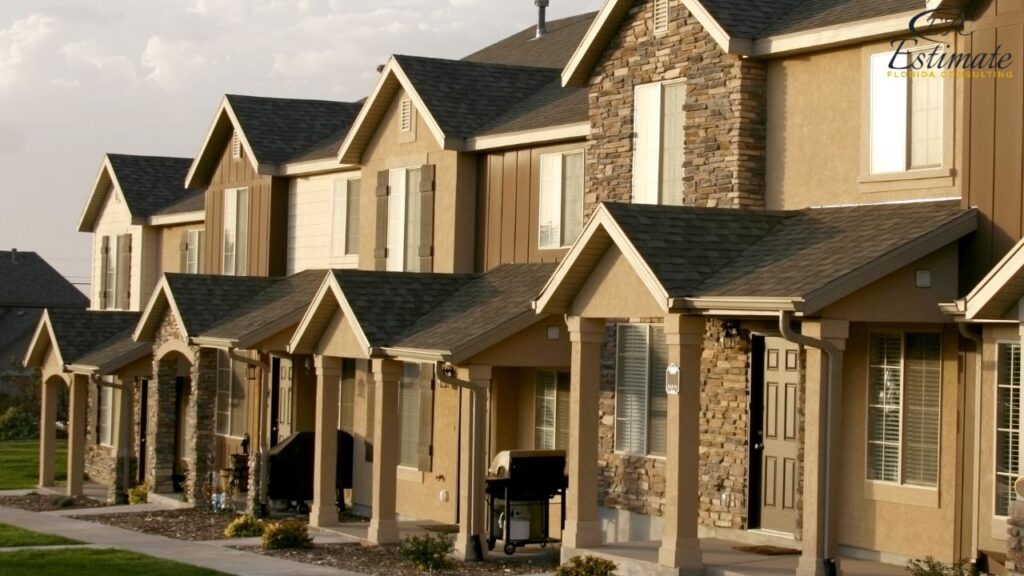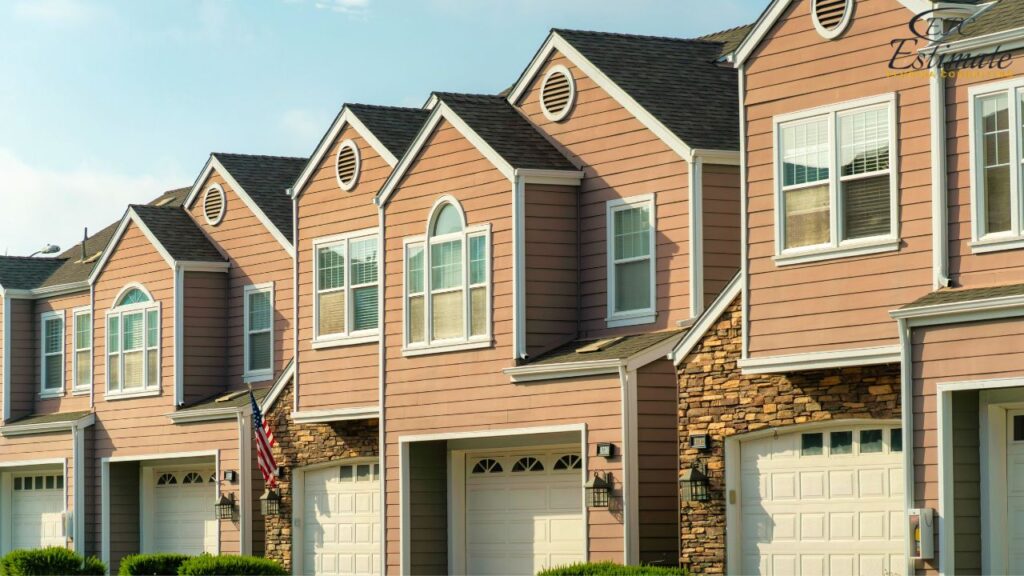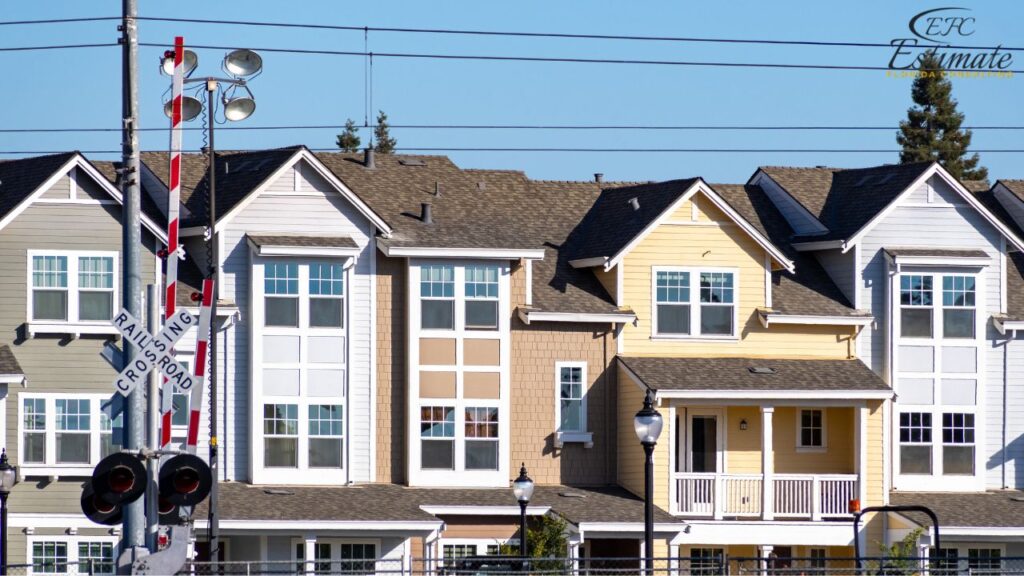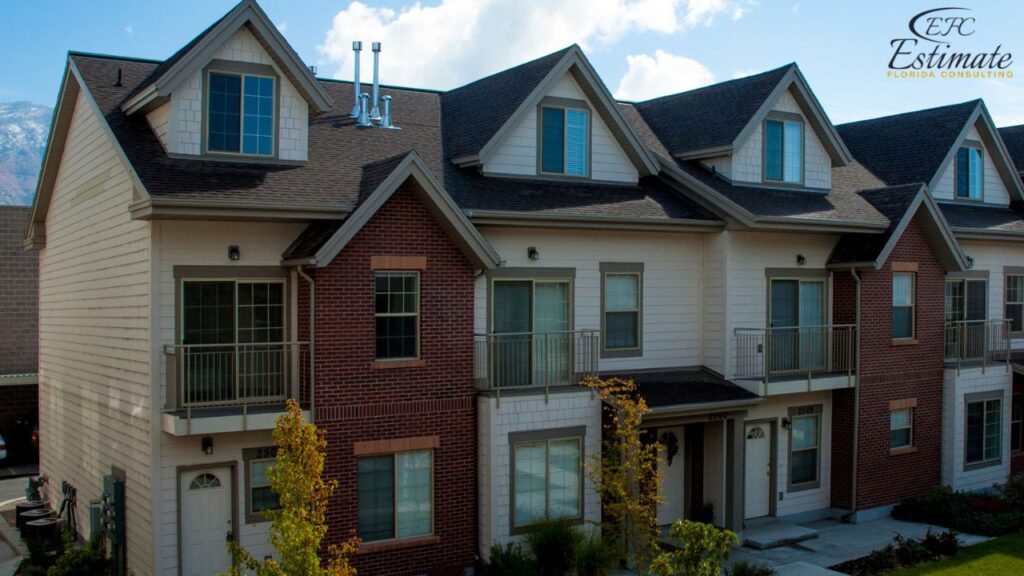How Much Does It Cost to Build a New 4-Plex?
Building a new 4-plex—a residential building consisting of four separate units—can be a rewarding investment but requires careful budgeting and planning. The total cost of constructing a 4-plex varies based on several factors, including location, design, materials, labor costs, and local regulations. The average cost to build a new 4-plex typically ranges from $1,352,000 to $2,704,000, depending on various factors. This range includes construction costs for materials and labor, site preparation, permits, and additional considerations. It’s essential to evaluate each component of the construction process and consult with local contractors and builders to get a precise estimate.

Adjusting the design or materials based on budget constraints can help manage costs effectively while still achieving a high-quality result.
Detailed Breakdown of Costs
Site Preparation and Foundation
Site preparation includes clearing the land, excavation, and laying the foundation. This phase is critical as it sets the stage for the entire construction project. Costs for site preparation and foundation can vary widely based on the complexity of the site, soil conditions, and local regulations. For example, if the lot has steep terrain or is heavily wooded, clearing and grading may require additional machinery or labor, thus increasing costs. Additionally, if the soil is unstable or has a high water table, it may necessitate more extensive foundation work, such as piling or retaining walls, further impacting the budget.
Component | Estimated Cost |
Site Clearing and Excavation | $8,500 – $25,500 |
Foundation (Concrete Slab) | $50,700 – $104,000 |
Grading and Drainage | $8,500 – $25,500 |
Site Preparation Costs
The cost includes land clearing, excavation, and grading, which can vary based on site conditions and the extent of the work required. This phase also involves ensuring proper drainage and soil stability to support the foundation. Any environmental considerations, such as wetlands or protected wildlife, could further increase costs and complexity. Moreover, the type of vegetation being removed and the disposal methods used can influence costs significantly.
Foundation Costs
The foundation is a crucial aspect of construction, supporting the weight of the building and ensuring stability. Costs can increase if additional work is needed due to challenging soil conditions, like high water tables or rocky terrain, which may require deeper foundations or special engineering solutions. Understanding local building codes and soil testing requirements is essential, as these can affect both the timeline and the overall cost of foundation work.
Building Materials
Building materials encompass framing, roofing, siding, windows, and doors. The choice of materials can significantly impact both cost and durability. The overall aesthetic appeal and longevity of the building are also influenced by the quality of materials used.
For instance, while opting for cheaper materials might lower initial costs, it could lead to higher maintenance costs and lower property value in the long term. Here’s a typical breakdown of material costs:

Material | Estimated Cost per Unit | Total Cost for 4 Units |
Framing (Lumber) | $68,000 – $130,000 | $272,000 – $520,000 |
Roofing (Asphalt Shingles) | $34,000 – $52,000 | $136,000 – $208,000 |
Siding (Vinyl) | $26,000 – $39,000 | $104,000 – $156,000 |
Windows and Doors | $34,000 – $68,000 | $136,000 – $272,000 |
Framing Costs
The framing cost includes the structural framework of the building, which supports all other components. The type and quality of lumber used can affect the overall cost. The size and design of the units, as well as any unique architectural features, will also influence the total framing cost. Investing in high-quality materials can lead to better structural integrity and a longer lifespan for the building.
Roofing Costs
Roofing materials protect the building from weather elements. Asphalt shingles are commonly used, but other materials like metal or tile can impact costs significantly. Additionally, any unique roofing design, such as slopes or skylights, will increase both material and labor costs. It’s also crucial to consider energy efficiency ratings of roofing materials, which can affect heating and cooling costs in the long run.
Siding Costs

Siding provides both aesthetic appeal and protection. Vinyl siding is a popular choice due to its durability and low maintenance, but higher-end materials like fiber cement or natural wood can significantly raise costs. It’s important to consider the long-term maintenance and energy efficiency of the chosen siding. Investing in high-quality siding can enhance the building’s overall value and appeal to potential renters or buyers.
Windows and Doors Costs
Quality windows and doors are essential for energy efficiency and security. Costs can vary based on the style, material, and energy efficiency rating. The overall design can also affect costs, as custom sizes or shapes will typically be more expensive. Ensuring that windows are properly sealed and insulated is vital for maintaining comfortable indoor temperatures and reducing energy bills.
Labor Costs
Labor costs cover the wages paid to construction workers, including carpenters, electricians, plumbers, and general contractors. Labor rates vary by region and complexity of the project. Higher labor costs may be associated with areas that have a high demand for construction services, as competition for skilled labor can drive up wages.
Labor Type | Estimated Cost per Square Foot | Total Labor Cost for 4 Units |
General Labor | $6.80 – $13.60 | $272,000 – $520,000 |
Electrical Installation | $3.40 – $6.80 | $136,000 – $272,000 |
Plumbing Installation | $5.20 – $10.40 | $208,000 – $416,000 |
General Labor Costs
Includes the cost of various tradespeople involved in the construction process. Rates depend on local market conditions and the experience level of the workers. Regional demand for labor and any specific skills required can also impact pricing. Hiring experienced professionals may result in higher upfront costs but can lead to better workmanship and reduced risk of costly mistakes during construction.
Electrical Installation Costs
Covers the cost of installing electrical systems, including wiring, outlets, and fixtures. Complex electrical systems, such as smart home technologies, or high-end fixtures can significantly increase costs, making it essential to plan early in the process. It’s also crucial to comply with local building codes, as failing to do so can result in fines or the need for costly rework.
Plumbing Installation Costs
Includes the cost of installing plumbing systems, such as pipes, fixtures, and water heaters. Higher-end fixtures or complex plumbing configurations can raise costs, as can local building codes that require specific materials or installation techniques. Investing in high-quality plumbing systems can help prevent future issues and reduce maintenance costs for the property owner.
Download Template For 4-Plex Project Breakdown
- Materials list updated to the zip code
- Fast delivery
- Data base of general contractors and sub-contractors
- Local estimators

Interior Finishes
Interior finishes include drywall, flooring, cabinetry, and painting. These elements contribute to the overall aesthetics and functionality of each unit. Quality interior finishes can significantly impact tenant satisfaction and the overall value of the property.
Finish Type | Estimated Cost per Unit | Total Cost for 4 Units |
Drywall Installation | $5,200 – $8,000 | $20,800 – $32,000 |
Flooring (Laminate) | $8,500 – $17,000 | $34,000 – $68,000 |
Cabinetry and Countertops | $12,000 – $20,000 | $48,000 – $80,000 |
Painting and Finishing | $6,800 – $13,600 | $27,200 – $54,400 |
Drywall Installation Costs
Involves hanging and finishing drywall to create smooth interior walls and ceilings. Costs vary based on the quality of finishing and complexity. If additional soundproofing or insulation is required, costs may increase. Choosing high-quality materials can enhance the durability of the walls and minimize future repairs.
Flooring Costs
Options like laminate, tile, or hardwood affect costs. Laminate is typically less expensive, while tile or hardwood can be pricier but offer greater durability and aesthetic appeal. Additionally, specialized flooring for kitchens or bathrooms will incur higher costs. It’s important to consider long-term maintenance and replacement costs when selecting flooring materials.
Cabinetry and Countertops Costs
High-quality cabinets and countertops can greatly enhance the functionality and appearance of kitchens and bathrooms. Costs depend on material choices, such as laminate versus solid wood, and the complexity of the installation. Custom cabinetry typically incurs higher costs but can provide better space utilization and increased property value. Properly designed kitchens and bathrooms can significantly boost tenant interest and rental rates.
Painting and Finishing Costs
The cost of painting and finishing includes both the materials and labor required to achieve a polished look throughout the units. High-quality paint and finishes not only enhance aesthetics but can also improve durability and ease of maintenance. Opting for eco-friendly or low-VOC paints may incur higher costs but can lead to better indoor air quality and increased tenant satisfaction.
Permits and Fees
Before construction can commence, various permits and fees must be secured. These can include zoning permits, building permits, and impact fees imposed by local governments. The total cost for permits and fees can vary based on location and the scope of the project.
Permit Type | Estimated Cost |
Building Permit | $3,400 – $8,400 |
Zoning Permit | $1,700 – $5,100 |
Impact Fees | $5,100 – $16,900 |
Inspection Fees | $1,700 – $5,100 |

Building Permit Costs
Typically required to ensure compliance with local building codes and regulations. The cost can vary significantly based on the scope of the project and local regulations. Failure to obtain the proper permits can result in fines and delays, making it crucial to understand local requirements early in the planning process.
Zoning Permit Costs
Ensures the property complies with local zoning laws. Zoning permits can vary in cost based on location and the specifics of the project. It’s essential to confirm that the proposed use of the property aligns with zoning regulations, as violations can lead to costly legal disputes or construction halts.
Impact Fees
Local governments may impose fees for the impact of new development on public services and infrastructure, such as schools, roads, and utilities. These fees can vary widely, and it’s important to budget for them when estimating overall costs. Understanding how these fees are calculated and their implications for the overall project can help in budgeting effectively.
Inspection Fees
These fees cover the costs of inspections throughout the construction process to ensure compliance with building codes. It’s essential to factor in these costs, as inspections are typically mandatory at various stages of construction. Being aware of inspection schedules can help streamline the construction process and avoid delays.
Financing Costs
If financing is required for the project, interest rates and loan fees can add to overall costs. Typical financing costs can range from 2.6% to 6.5% of the total construction budget, depending on creditworthiness and lender terms.
Understanding the nuances of financing is crucial for budgeting accurately. Factors such as the loan amount, interest rate, and loan term can significantly impact overall costs. It’s advisable to explore multiple financing options to secure the best possible rates and terms. Consulting with a financial advisor or mortgage broker can provide insights into effective financing strategies that align with your budget and investment goals.
Get 5 New Leads Next 7 Days With Our System
- Multi-Family House
- Single-Faimly House
- Modern House
- Duplex
- Ranch House
- Bungalow
Insurance Costs
Insurance is necessary to protect against potential risks during construction. Typical costs for builders’ risk insurance can range from $1,700 to $5,100 for the project duration.
Having adequate insurance coverage is essential for mitigating risks associated with construction. Builders’ risk insurance covers losses or damages to the property during construction, protecting against unforeseen circumstances such as weather-related incidents or theft. Additionally, it may be beneficial to explore general liability insurance to cover potential accidents or injuries that may occur on-site.
Conclusion
Building a new 4-plex involves various costs that can significantly impact your budget. The overall cost typically falls between $1,761,000 and $3,515,200, depending on several factors, including site preparation, building materials, labor costs, and additional considerations such as permits and insurance. It’s crucial to create a detailed budget that considers all aspects of construction and consult with local contractors to get accurate estimates. By carefully planning and budgeting, you can ensure that your investment in a new 4-plex is both successful and financially sound. Making informed decisions throughout the process can lead to higher returns on investment and a smoother construction experience.
FAQs
The average cost to build a new 4-plex typically ranges from $1,352,000 to $2,704,000. This range includes construction costs for materials and labor, site preparation, permits, and other related expenses.
Several factors can influence the cost of building a 4-plex, including:
- Location: Regional construction costs and demand for labor.
- Design and Layout: Complexity and style of the building.
- Materials: Quality and type of materials used for construction.
- Labor Costs: Rates for skilled labor in the area.
- Permitting and Regulations: Local regulations and permit requirements.
Site preparation costs can range from $67,700 to $155,000, including:
- Site Clearing and Excavation: $8,500 – $25,500
- Foundation (Concrete Slab): $50,700 – $104,000
- Grading and Drainage: $8,500 – $25,500
Building materials can significantly affect overall costs, with estimates typically between $1,065,000 to $1,520,000 for materials such as:
- Framing (Lumber): $272,000 – $520,000
- Roofing (Asphalt Shingles): $136,000 – $208,000
- Siding (Vinyl): $104,000 – $156,000
- Windows and Doors: $136,000 – $272,000
Labor costs for building a 4-plex can range from $616,000 to $1,064,000, broken down as follows:
- General Labor: $272,000 – $520,000
- Electrical Installation: $136,000 – $272,000
- Plumbing Installation: $208,000 – $416,000
Interior finishes contribute significantly to the overall budget, with estimated costs between $130,800 to $247,400:
- Drywall Installation: $20,800 – $32,000
- Flooring (Laminate): $34,000 – $68,000
- Cabinetry and Countertops: $48,000 – $80,000
- Painting and Finishing: $27,200 – $54,400
Permits and fees can add an additional $12,900 to $35,500 to the budget, including:
- Building Permit: $3,400 – $8,400
- Zoning Permit: $1,700 – $5,100
- Impact Fees: $5,100 – $16,900
- Inspection Fees: $1,700 – $5,100
Yes, financing costs can add 2.6% to 6.5% of the total construction budget, depending on the interest rate and terms. It’s essential to explore multiple financing options for the best rates.
Insurance costs, specifically builders’ risk insurance, can range from $1,700 to $5,100 during the project duration, protecting against potential risks.
The overall cost to build a new 4-plex generally falls between $1,761,000 and $3,515,200, depending on factors such as site preparation, building materials, labor, permits, and insurance.
Google Reviews



Process To Get New 4-Plex Cost Estimate Report
Here I am going to share some steps to get new 4-plex cost estimate report.
-
You need to send your plan to us.
You can send us your plan on info@estimatorflorida.com
-
You receive a quote for your project.
Before starting your project, we send you a quote for your service. That quote will have detailed information about your project. Here you will get information about the size, difficulty, complexity and bid date when determining pricing.
-
Get Estimate Report
Our team will takeoff and estimate your project. When we deliver you’ll receive a PDF and an Excel file of your estimate. We can also offer construction lead generation services for the jobs you’d like to pursue further.

